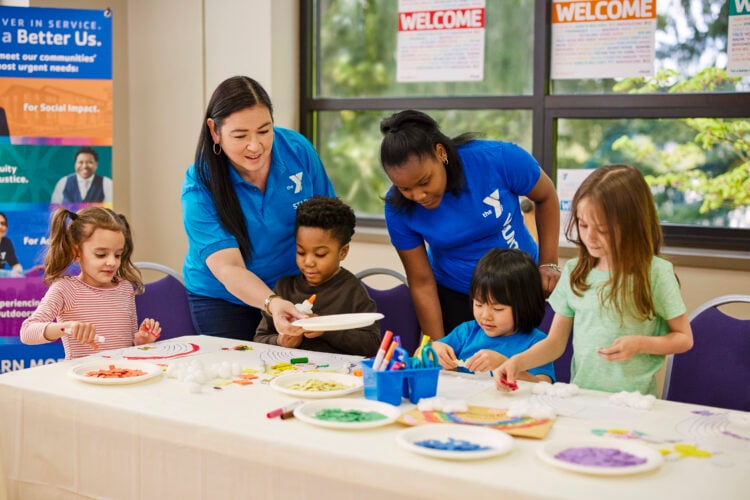
Child Safety is Our Priority
Praesidium Accredited for Outstanding Standards in Child Safety and Protection
Greater Somerset County YMCA is proud to have achieved Praesidium Accreditation as part of our ongoing commitment to ensuring the safety and well-being of all who walk through our doors. Praesidium Accreditation is a standardized, consistent, and objective process that allows organizations to publicly demonstrate their commitment to abuse prevention.
OUR COMMITMENT TO YOUTH PROTECTION
We believe ALL children deserve the opportunity to discover who they are, and what they can achieve. Every day, we are proud and respectful of the trust parents place in the Y. From youth sports to day and summer camp; from out-of-school time to preschool; we work to ensure your children have a safe, fun filled experience.
HOW WE CREATE SAFE SPACES FOR YOUTH
- Screening: All new employees and volunteers undergo a background check prior to hiring. This is in addition to sex offender screenings the Y regularly conducts on all members, participants, and staff on an ongoing basis.
- Training: All YMCA staff and volunteers are obliged to undergo extensive child abuse prevention training through online and in-person courses, and are required to renew their training on an annual basis. The objective of this training is to impart knowledge on unacceptable behavior, as well as to educate on how to recognize indicators of abuse.
- Reporting: In the event of any accusation, the YMCA will take a proactive approach and collaborate with relevant authorities and individuals involved to respond swiftly, comprehensively, and with compassion.
- Raptor: This system instantly screens visitors against registered sex offender databases in all 50 states and alerts Y staff of a potential match found, allowing Y staff to prevent them from accessing our YMCA facilities. If required, law enforcement will also be informed.
- Policy: Greater Somerset County YMCA has a zero-tolerance policy toward child abuse and child endangerment, and staff are to report any questionable behavior they see or violations of their Employee Code of Conduct.
YMCA ZERO TOLERANCE POLICY
Greater Somerset County YMCA has as zero tolerance for abuse and will not tolerate the mistreatment or abuse of youth in its programs. Appropriate and respectful interactions with program participants and YMCA staff are essential to having a successful experience. If behavior becomes unmanageable or is threatening to the well-being of others, the YMCA reserves the right to dismiss any staff, volunteer, or participant.
KNOW. SEE. RESPOND.
The Know. See. Respond. campaign are foundational habits of child sexual abuse prevention. When put into practice, they help us create safer environments for children to grow and learn. 
Know: Knowing about child sexual abuse can help us better understand what to look for and how to keep it from happening in the first place. For example, did you know that 1 in 10 children in the U.S will be sexually abused before their 18th birthday?
See: When we know the signs of abuse, we can intervene on behalf of children.
Respond: If you suspect abuse, are you ready to respond? Do you know when and how to report suspected child abuse? Follow the link below to find your state’s child protection agency
Child abuse can take many different forms:
- Emotional abuse is the use of threats or words to harm a youth’s feelings and self-esteem and the withholding of love and support. Examples include ridiculing, rejecting, blaming or communicating unrealistic expectations.
- Physical abuse is the deliberate injury of a youth by any person, including by another youth.
- Sexual abuse is any sexual activity between an adult and a minor or between two minors when one exerts power over the other. It includes genital touching, inappropriate hugging or kissing, playing sexually-oriented games and sexual intercourse. It also includes non-contact acts such as exhibitionism, exposure to pornography, voyeurism, taking nude photos and communicating in a sexual manner by phone or internet.
- Child neglect is a form of abuse that occurs when a person responsible for the care of a youth fails to provide necessary food, clothing, medical care, education, affection, shelter or supervision.
Watch for these warning signs of abuse:
- Abrupt changes in behavior, anxiety, clinging, aggressiveness or withdrawal.
- Discomfort with physical contact.
- Fearfulness or depression.
- Abuse or bullying of other youth.
- Avoidance of a particular person or place, or refusing to go to a friend’s or relative’s home for no apparent reason.
- Sexual language or behavior that is not age appropriate.
- Unexplained bruises, welts, or burns.
- Unkempt or malnourished appearance.
- Disturbed sleeping or eating patterns.
- Sexually transmitted diseases and infections.
- Educate your youth about self-protection, including information about strangers and good and bad touches.
- Ask them often if anyone has said anything or done anything that has made them uncomfortable or feel bad.
- Learn to control the stress level of yourself and family members.
- Recognize the fact that most abuse happens by people that youth know and trust.
- Become aware of your community resources.
- Know where your youth are and who their friends are.
- Learn to recognize warning signs of child abuse.
- Teach your youth it’s not okay to keep secrets from you; that they can always tell you the truth.
Your reaction has a powerful influence on how your youth responds. Here’s a good way to respond:
Stay calm : Staying calm at a time like this will be very difficult for you. Avoid overreacting or expressing shock or outrage. Try not to cry.
Listen: Listen carefully to what your youth tells you. Your youth will be scared and may not give you many details. Ask questions like: “Can you tell me more about it?” “What did the person do?” “When did this happen?” or “How many times did this happen?”
Comfort your youth : Let your youth know that you love them very much and that they have done nothing wrong. A big hug can work wonders. Tell your youth that you believe them. Praise your youth’s courage for telling you. Don’t ask your youth why they didn’t tell you sooner—that will just make them feel guilty.
Don’t threaten or criticize the person who committed the abuse : Although this is a natural response, avoid criticizing the person your youth has identified as the abuser. Chances are, your youth knows the person well and may even care very much for the person.
Take action : Trust your instincts and keep your youth away from the person involved. If you think your youth is physically injured, seek appropriate medical attention.
Click on the links below to learn more about youth protection:
Educational videos for families, guardians and/or caregivers:
Sources: Praesidium, Childhelp, Common Sense Media, Committee for Children, Fight Child Abuse
How to Report Abuse:
- You do not need proof that abuse is occurring to make a report, only reasonable suspicion. Reporting child sexual abuse is key to preventing and intervening in abuse.
- If you need to report an emergency situation involving child sexual abuse, please call 911.
- Otherwise, please contact the appropriate local and state authorities to report suspected incidents of child sexual abuse.
- Greater Somerset County YMCA is Praesidium Accredited. Praesidium Accreditation is a standardized consistent, and objective process that allows organizations to publicly demonstrate their commitment to abuse prevention.
- To make an anonymous call to the Praesidium helpline for confidential expert consultation for your abuse prevention questions and issues, please call 866-607-7233.


